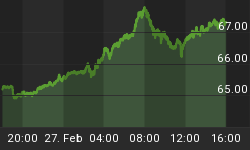Bloomberg has an excellent interactive analysis on the potential for a near one million count revision upwards of the unemployment numbers. This combined with the work my team and I have put together should lead subscribers to believe that medium term, unemployment can exacerbate the global equity market decline. See "Are the Effects of Unemployment About To Shoot Through the Roof?" as excerpted below.
A recent zero-hedge article rightly questioned the reliability of the reported unemployment figures by comparing the reported increase in the unemployment benefits paid with the reported increase in the number of insured unemployed. According to the figures reported by Department of Labor (DOL), the total number of insured unemployed in the US has risen by nearly 400% since September 2007 and has reached nearly 10.5 million as of Dec 19, 2009. However, if we look at the monthly withdrawals on the unemployment insurance account (according to the Daily Treasury Statement prepared by the Financial Management Service), the expenditure has risen by nearly 550%. The difference has been widening since April 2009 (coincidentally, right about the time the S&P 500 rocketed skywards, and the housing market made several month to month gains [see If Anybody Bothered to Take a Close Look at the Latest Housing Numbers..."]) and has increased substantially in Dec 2009.
With no reason to believe that the average payouts increased dramatically (that could have otherwise explained this variation), the article rightly points out the huge discrepancy that is creeping in the reported figures. According to Zero-hedge, the insured unemployed are understated by 32% and estimate the insured unemployed at nearly 14 million. The Bureau of Labor Statistics reported the total number of unemployed at 15.6 million and the unemployment rate at 10% in Dec 2010. With serious doubts being raised about the reported figures of the insured unemployed that forms a substantial portion of total unemployed (nearly 69% in Dec 2010, based on reported figures), the total unemployment figures reported by the government is most likely severely understated.

The grave unemployment situation not only undermines the economic health and recovery hopes, but is also acting as a major source of financial strain on the Fed's books. The Fed has been spending huge amounts of money in the form of UI (unemployment insurance) benefits. In 2009, the government paid about $139 billion in UI benefits. Based on the figures for total unemployed by Bureau of Labor statistics and total insured unemployed by DOL, the total insured unemployed which are being supported by the government under the various state and federal programs have risen to 69.0% of the total unemployed as of Dec 2009 from just 29.0% in Sep 2007. Further it is observed that the Fed has been taking in huge deficits on its books because of UI programs. The total UI withdrawals on Fed books in 2009 were $139 billion against deposits of just $31 billion received from states for unemployment. While the withdrawals in 2009 have increased by 320% when compared with withdrawals in 2007, the deposits have declined by 6.6%. The deficit has increased to nearly $107 billion from nearly no deficit, two years ago.

















